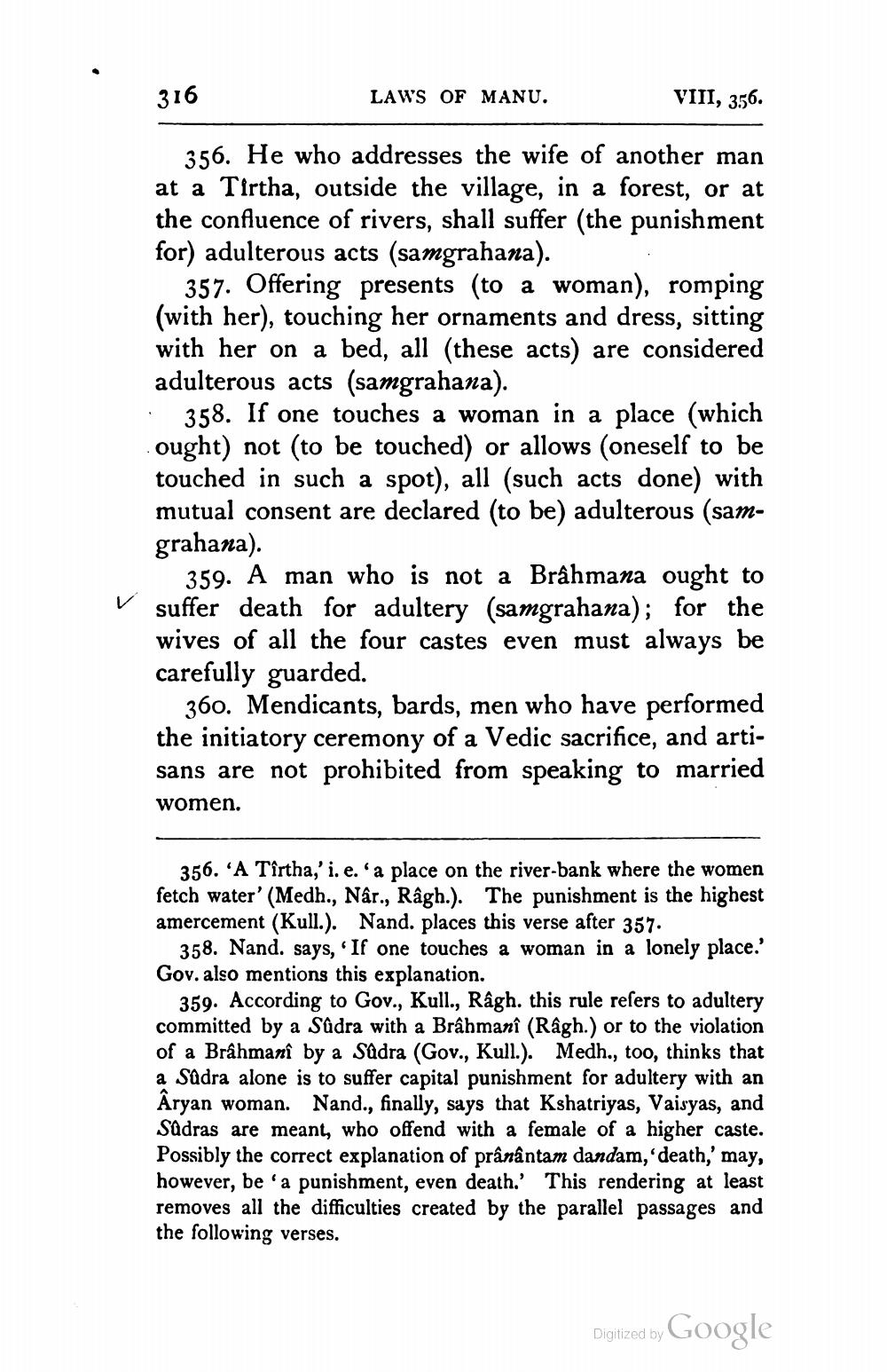________________
V
316
VIII, 356.
356. He who addresses the wife of another man at a Tirtha, outside the village, in a forest, or at the confluence of rivers, shall suffer (the punishment for) adulterous acts (samgrahana).
LAWS OF MANU.
357. Offering presents (to a woman), romping (with her), touching her ornaments and dress, sitting with her on a bed, all (these acts) are considered adulterous acts (samgrahana).
358. If one touches a woman in a place (which ought) not (to be touched) or allows (oneself to be touched in such a spot), all (such acts done) with mutual consent are declared (to be) adulterous (samgrahana).
359. A man who is not a Brahmana ought to suffer death for adultery (samgrahana); for the wives of all the four castes even must always be carefully guarded.
360. Mendicants, bards, men who have performed the initiatory ceremony of a Vedic sacrifice, and artisans are not prohibited from speaking to married
women.
356. 'A Tîrtha,' i. e. ' a place on the river-bank where the women fetch water' (Medh., Nâr., Râgh.). The punishment is the highest amercement (Kull.). Nand. places this verse after 357.
358. Nand. says, 'If one touches a woman in a lonely place.' Gov. also mentions this explanation.
359. According to Gov., Kull., Râgh. this rule refers to adultery committed by a Sûdra with a Brâhmanî (Râgh.) or to the violation of a Brahmanî by a Sûdra (Gov., Kull.). Medh., too, thinks that a Sûdra alone is to suffer capital punishment for adultery with an Aryan woman. Nand., finally, says that Kshatriyas, Vaisyas, and Sûdras are meant, who offend with a female of a higher caste. Possibly the correct explanation of prânântam dandam, 'death,' may, however, be a punishment, even death.' This rendering at least removes all the difficulties created by the parallel passages and the following verses.
Digitized by Google




